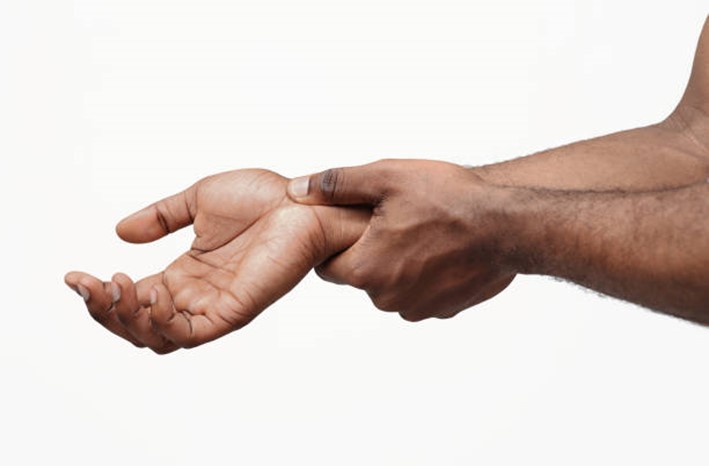
WRIST PAIN
- 2024-07-26 01:09:13

Frozen shoulder, also called adhesive capsulitis, involves stiffness and pain in the shoulder joint. It is often caused by inflammation of the joint capsule; the tissue surrounding the shoulder joint together with fibrotic adhesions that limit shoulder movement.
Symptoms typically begin slowly and worsens progressively. Over time, symptoms get better, usually within 1 to 3 years and most commonly affects adults between 35-60 years with women being the most prevalent.
Causes;
Signs and symptoms
Mechanism;
Frozen shoulder causes the shoulder joint capsule to shrink (to < 5cm3) and thicken (from 1mm to 5mm) leading to pain and stiffness hence reduced shoulder range of motion.
Stages;
Frozen shoulders occur in 3 stages;
This stage is characterized by slow onset of pain around the shoulder at rest followed by progressive loss of shoulder motion. It lasts from 3-9months.
Stiffness is dominant in this phase. Pain starts to reduce and is apparent only at extremes of movement. There is progressive loss of joint motion due to stiffness and lasts between 9-15months.
In this phase, there is significant progressive improvement in functional range of movement which lasts between 15-24months. It is, however, characterized by mild to no pain.
Common issues associated with frozen shoulder include;
Inability to;
Risk Factors leading to a frozen shoulder;
Diagnosis
Treatment
Physiotherapy management.
Physiotherapy management is based on pain reduction and improving shoulder mobility. This is achieved through;
Other physiotherapy options include;
Compiled by Spine Health and Sports Injury Clinic.